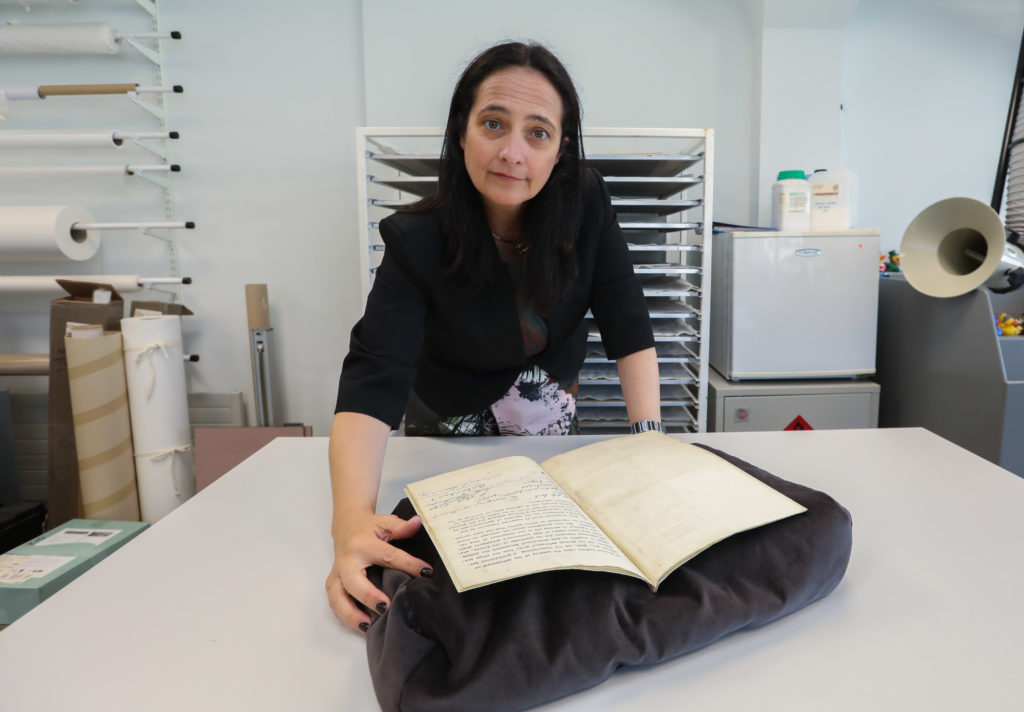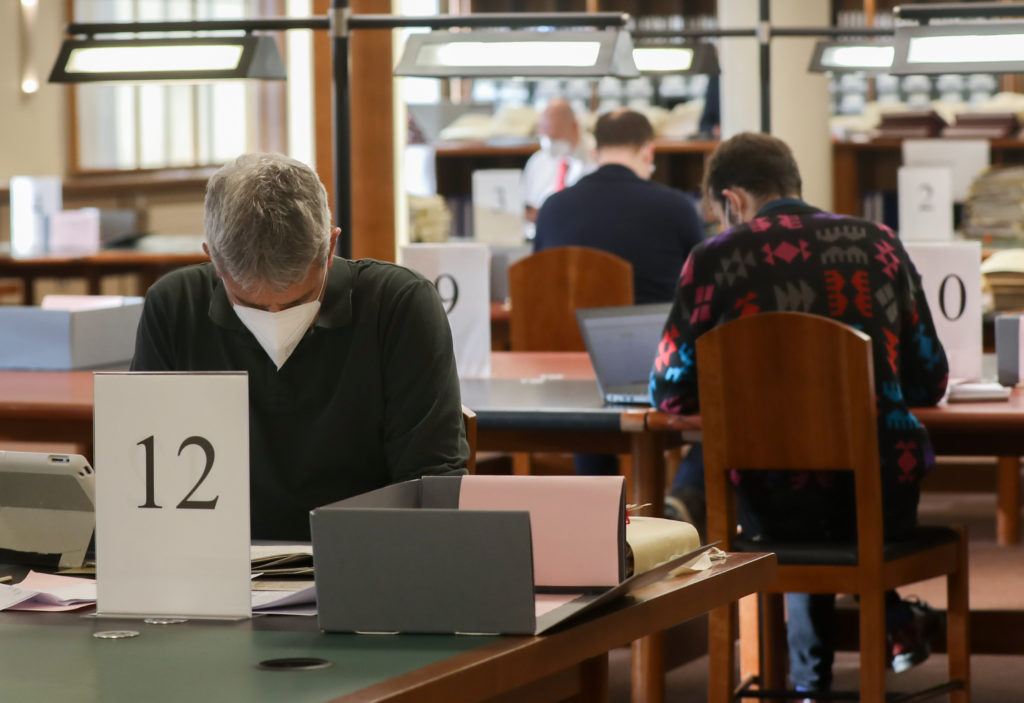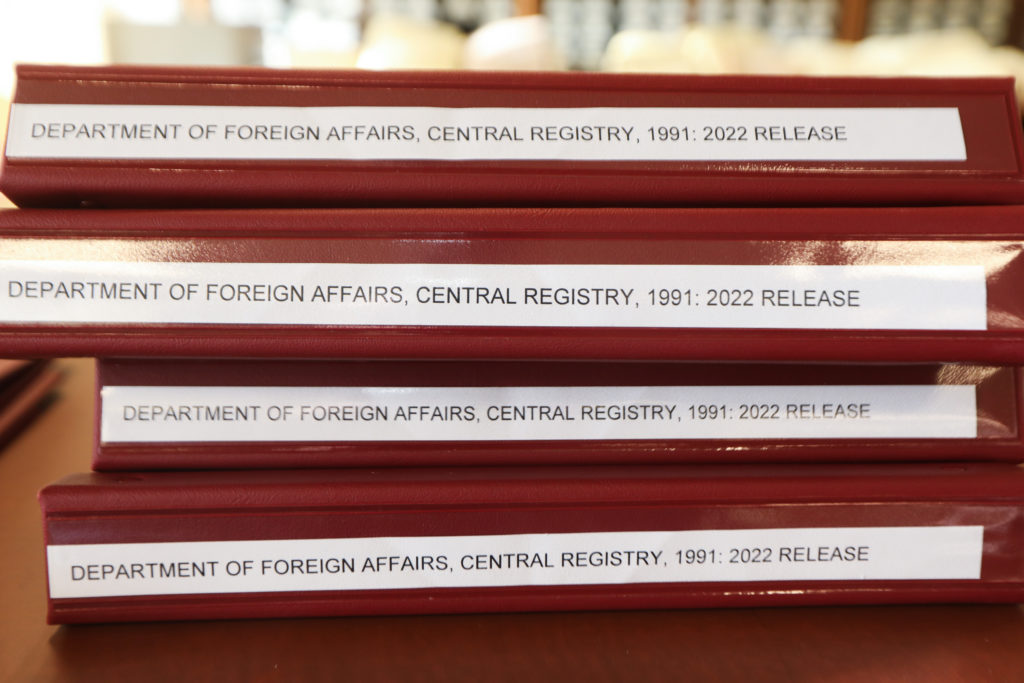A MAJOR expansion of the site where Ireland’s national archives are held has begun this week.
The state-of-the-art upgrade of the archive repository at the National Archives on Bishop Street in Dublin 8 is designed to “future-proof the records of the State over the coming decades in a purpose-built, modern archive building”.
Costing €37m, the redevelopment project, which is due to be completed in 65 weeks, is being funded by the Department for Tourism, Culture, Arts, Gaeltacht, Sport and Media and is being delivered in partnership with the Office of Public Works.
It falls under the National Cultural Institutions investment programme as part of Project Ireland 2040.
 Minister for Tourism, Culture, Arts, Gaeltacht, Sport and Media, Catherine Martin pictured at the National Archives in Dublin
Minister for Tourism, Culture, Arts, Gaeltacht, Sport and Media, Catherine Martin pictured at the National Archives in DublinSpeaking as the project started on May 22, Culture Minister Cartherine Martin said: “I am delighted to be here today as work begins on transforming the archive repository at the National Archives.
“We saw, during the Decade of Centenaries, the vital role the National Archives plays in preserving the precious records of the State.
“The expansion and conversion of the Bishop St building to a modern, state of the art, secure and environmentally-controlled repository, complying with internationally accepted archival storage standards, will provide an increase of two-thirds in the total storage capacity of the National Archives.”
She added: “This is significant project for one of our Cultural Institutions and ensures the National Archives can meet its evolving needs in a sustainable and future-proofed manner.”
The collections held in the National Archives total over 50 million official records dating from the 16th century to records relating to the modern Irish state.
 Ireland's National Archives hold over 50million official records
Ireland's National Archives hold over 50million official recordsIt also holds early Census records including the 1901 and 1911 censuses that are publicly available.
Currently the Archives team are working on the public release of the 1926 Census, the first census of the Irish Free State, which will be released in April 2026.
The main collections of the National Archives are kept securely at buildings on Bishop Street, Dublin 8 where there are also public reading rooms, office accommodation and archival storage.
However, despite its very large footprint, the Bishop Street building – which was formerly the site of a Jacobs biscuit factory - has been unable to take records at volume since 2013.
The re-development will accommodate over 300,000 archive boxes in a purpose-built, dedicated archival repository, designed with ground works, foundations and services that offer the potential to develop future archival storage vaults if required over time.
Kieran O’Donnell, the Minister of State for the Office of Public Works said the project is a “significant milestone”.
“The commencement of works at the National Archives Building on Bishop Street marks a significant milestone in protecting the State’s physical records and collections of our past,” he said.
“The re-development of the building will provide the necessary space required to accommodate not only our current volume of records but will also provide opportunities to develop additional archival storage as required into the future," he added.
"I am delighted that this project is progressing to the next stage, bringing us closer to a modern, fit for purpose repository for State records that will meet current and future demands”.
 1The National Archives are housed in Dublin
1The National Archives are housed in DublinIreland’s National Archives – the case for redevelopment
Ireland’s National Archives repository has been full since 2013.
The overflow is stored in commercial off-site storage. To mitigate this cost, the National Archives accepts less than half of the annual transfer of 30-year old records and mainly those, which have a significant public interest such as documents relating to Government decisions and 20-year Anglo-Irish matters.
The new repository will increase the capacity of the National Archives by two-thirds by inserting a second floor within the existing repository structure and providing for state of the art racking and shelving systems.
The re-development will also strengthen the existing foundations to support the present works, as well as allowing for future upward expansion.
The new repository will provide climate control and fire protection for the National Archives collections.
The new archive repository will enable all back-logs currently in government departments and bodies to transfer to the National Archives.
The National Archives is also in the process of developing a Digital Repository to enable the transfer of born-digital records.

